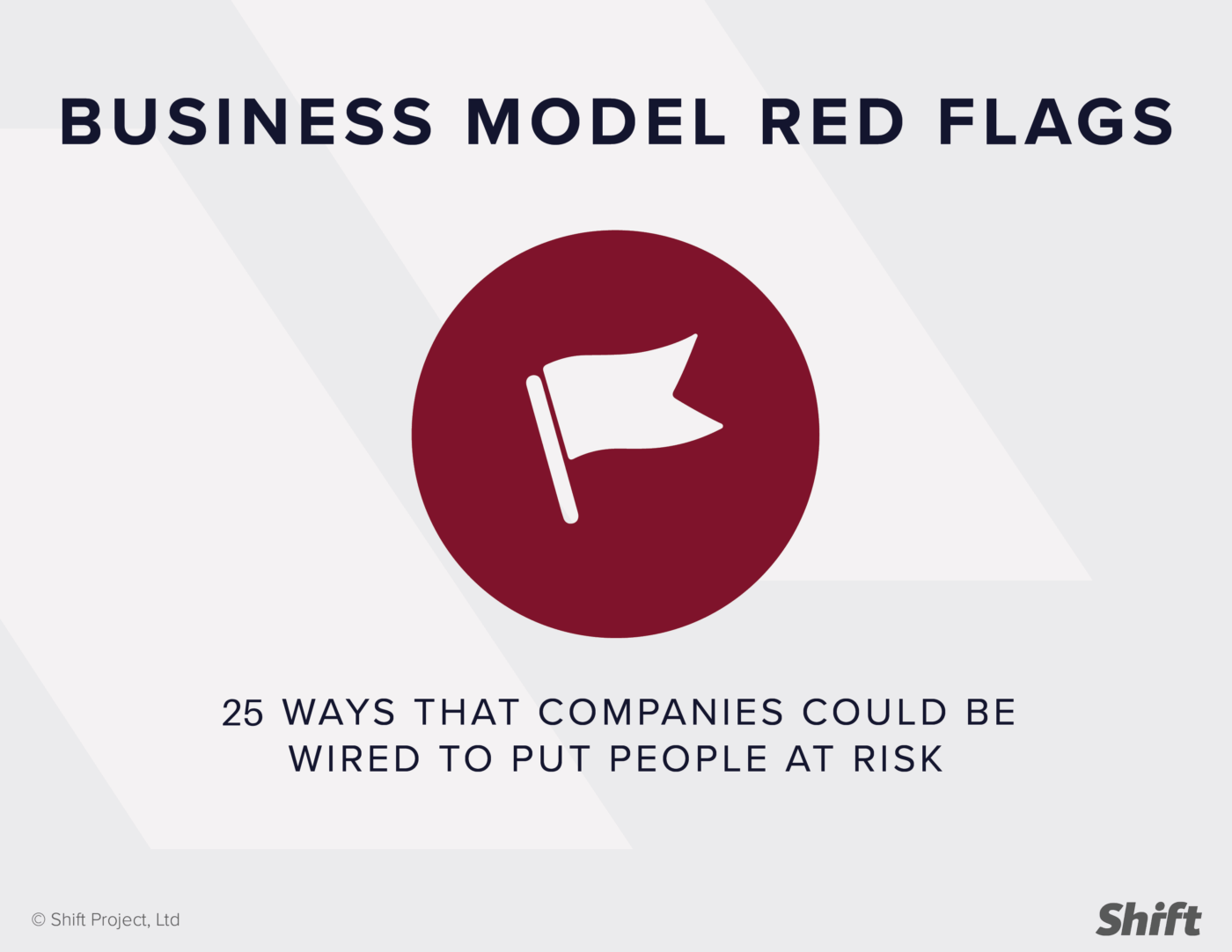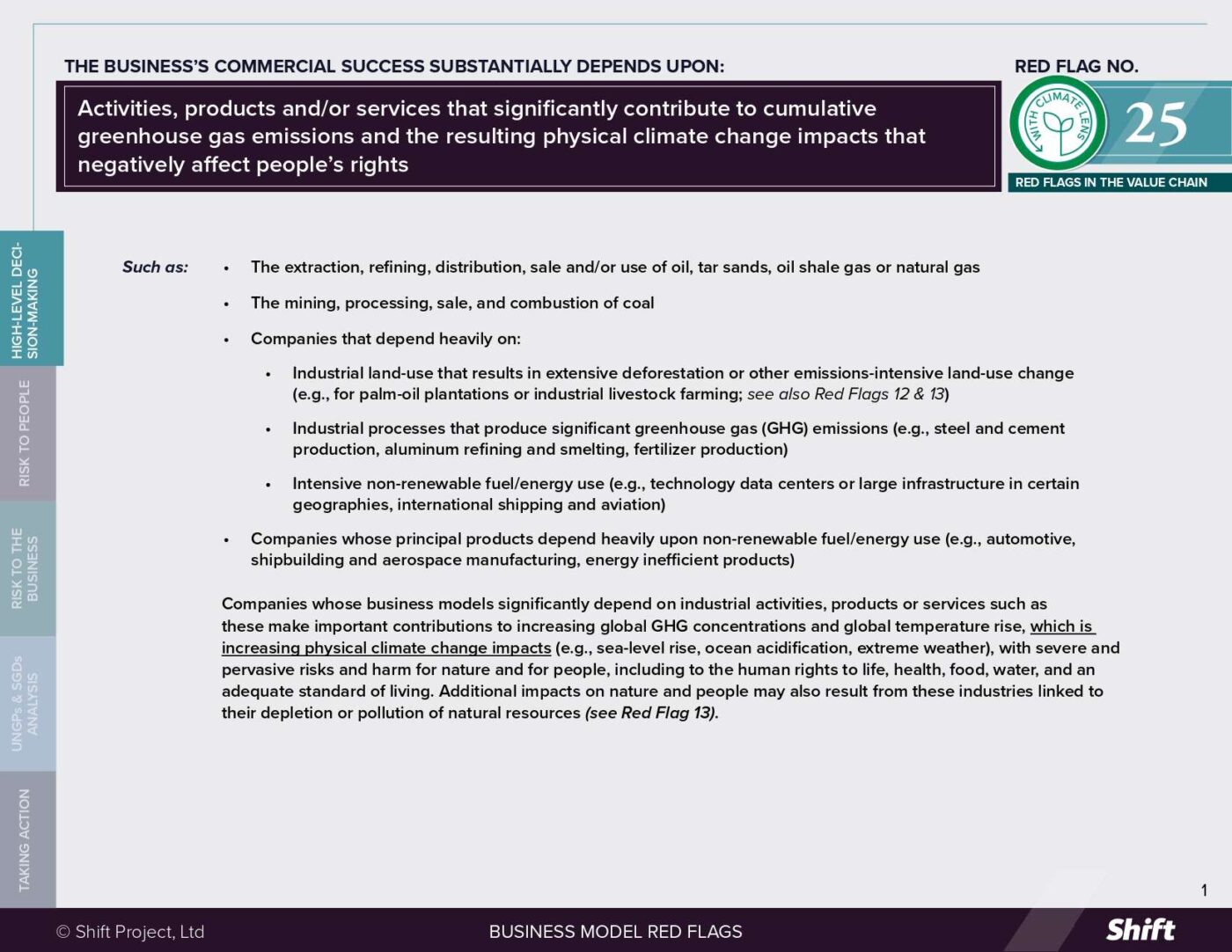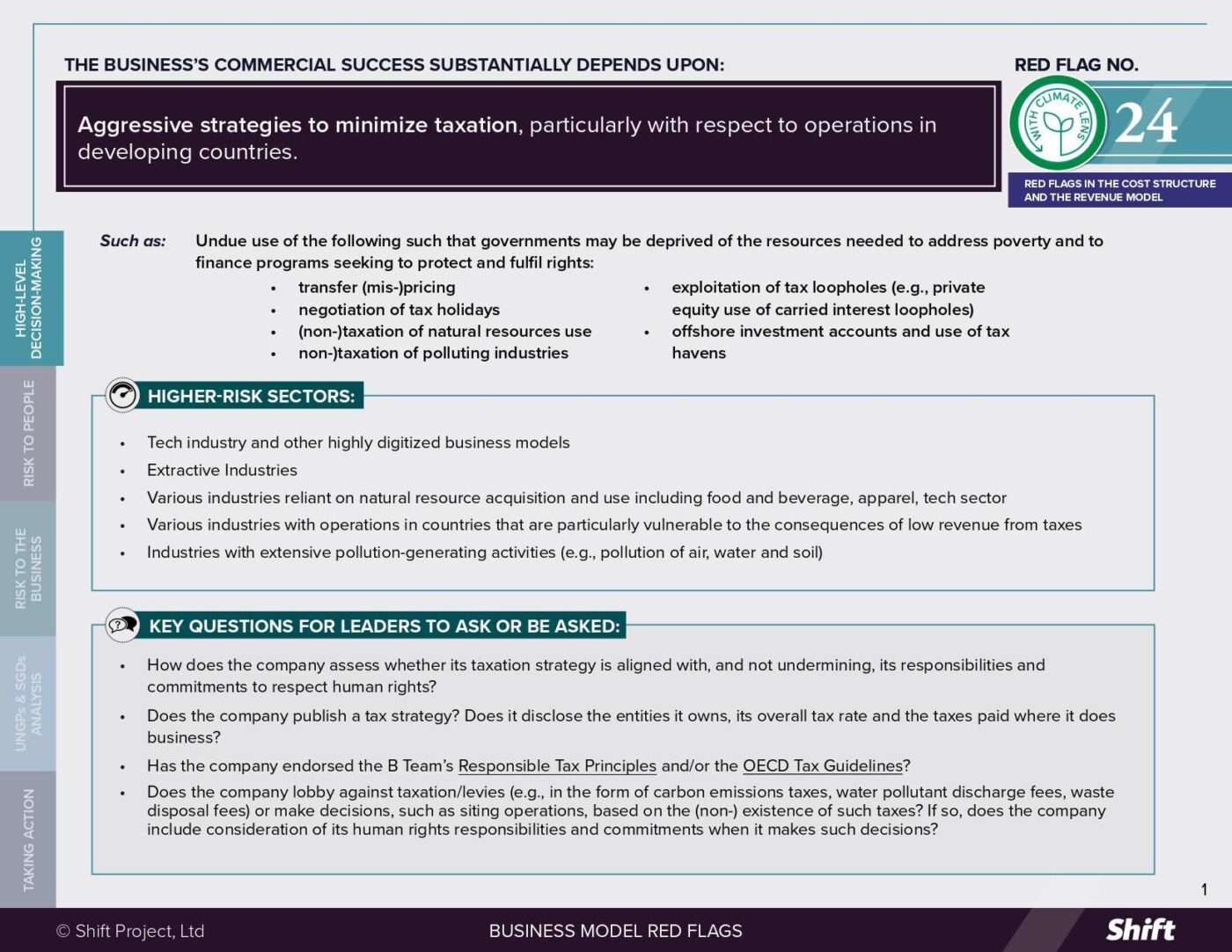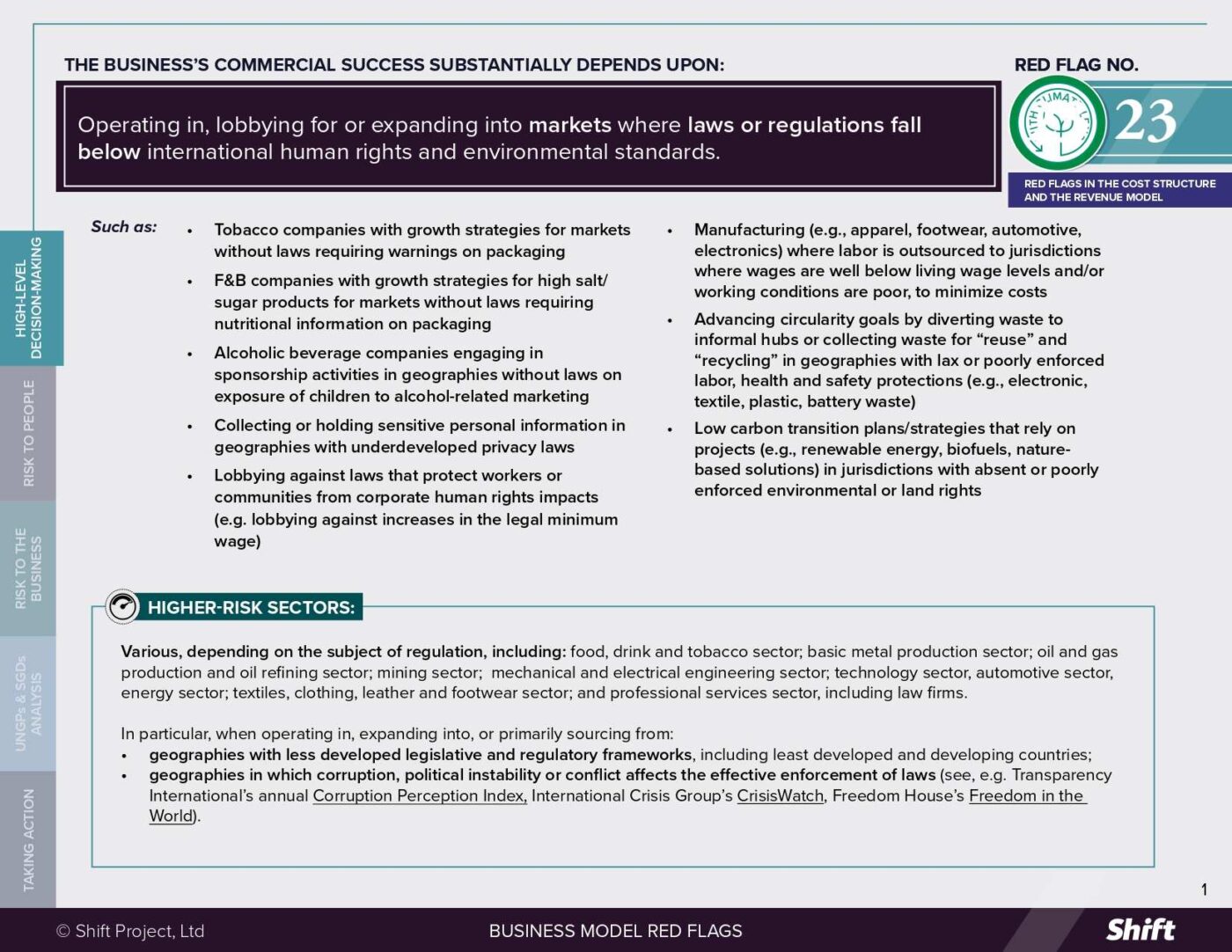We help companies hard wire respect for human rights into how business gets done.
At Shift we ground our approach to achieving change in principled pragmatism. Helping embed respect for people across all dimensions of business is what drives us. We do so by working with companies on solutions that will succeed in the day-to-day of their working realities. That is how we can ultimately improve people’s lives. And that is how we balance our roles as strategic thought partner, ally and critical friend.
We work with leading global companies at both strategic and operational levels, helping them build the vision, systems and capacity they need to implement the UN GUIDING PRINCIPLES themselves. Many of our partnerships with business start with a tailored individual project, aimed at tackling a specific human rights challenge or advancing internal understanding of the organization’s human rights responsibilities. However, our most committed business partners soon evolve to become members of our signature Business Learning Program.
Our goal is not only to support individual businesses in solving specific challenges but to help raise the bar of what rights-respecting practice should look like. Our applied experience with business informs our broader work with STANDARD-SETTING AND REGULATORY BODIES, industry associations, INVESTORS AND OTHER MARKET ACTORS that influence business behavior.
Our Approach
We are people-centered and results-oriented.
Shift is recognized worldwide as the leading center of expertise on the UN Guiding Principles, not only because of our team’s involvement in shaping the standard and our experience in putting it into practice but because of our unique, exploratory and collaborative approach.
At Shift, we welcome opportunities to explore tough issues together with our partners. Rather than off-the-shelf answers, we delve into each challenge by asking purposeful questions that support joint exploration and, ultimately, long-lasting solutions tailored to the unique situation of each organization.
Putting people first is at the core of our mission. We work with our business partners to co-design interventions that lead to better outcomes for people, informed by our relationships with civil society allies.
We use our theory of change methodology – developed through our flagship Valuing Respect project – to make sure that our work, as well as that of our partners, is leading to the right behaviors, practices and, ultimately, better outcomes for those at risk.
_____
EXPLORING INNOVATIVE APPROACHES THROUGH PEER LEARNING AND COLLABORATION
We believe in the power of peer-learning and collaboration, both within an industry and across sectors. Our Business Learning Program allows companies to work together, learn from each other and discuss difficult challenges in a safe and practical space.
In addition, we bring businesses together in many other ways including through working sessions, industry-level actions and cross-industry collaborations. And, because we work as actively with civil society, regulatory bodies, investors, trade unions, governments and others, we are quick to identify opportunities for cross-sectoral partnerships and multi-stakeholder solutions.
LEVERAGING WHAT WE LEARN FOR PUBLIC BENEFIT
We believe that our business partners need a safe space where they can be frank about their challenges and test possible solutions to improve outcomes for people. We work hard to ensure that they feel that way. At the same time, we believe that every business engagement is an opportunity to foster learning that may be shared publicly. In every collaboration, we seek to identify practical insights and lessons that may be shared publicly, without putting our partners’ confidentiality at risk. We compile our learnings, analysis and insights in public outputs that are shared in our library of resources and through Viewpoints.
RECOGNIZING THE ROLE OF TRADE UNIONS, CIVIL SOCIETY AND OTHER KEY STAKEHOLDERS
Working with companies is only one part of what we do to shape business practice. Equally critical is the work that we do with other stakeholders like trade unions, civil society organizations and multistakeholder initiatives. You can learn more by visiting our page on international partnerships.
We also partner with other critical agents of change that can help embed incentives across markets in order to influence business behavior. Notably, this includes our work with standard setters, such as governments and business associations, and our work with financial institutions, including investors.
Focus Areas
WHAT WE SPECIALIZE IN WHEN WE WORK WITH BUSINESSES
In more than a decade of hands-on work with businesses, we’ve developed a deep understanding of human rights issues across many sectors – including pharmaceutical, food and beverage, energy, apparel, fast-moving consumer goods (FMCG), retail, technology, financial institutions and global sports, among others. Our dedicated experts have also done site-level work in dozens of countries across nearly all continents.
On any given day, we are working with companies to conduct reviews of policies and processes, design effective stakeholder engagement processes, assess human rights impacts and help prioritize action, identify and address salient human rights issues and build internal capacity for human rights champions and their peers.
You can learn about the diversity of projects and challenges that we are working on with companies in our Business Learning Program page. In addition, we are particularly interested in supporting companies and their stakeholders as they navigate challenges in three key areas:
Gaps in Key Due Diligence Systems
We work with companies to help them overcome challenges in each phase of the human rights due diligence cycle, including:
- Strategic use of leverage in complex business relationships, including in joint ventures, with franchisees, state-owned enterprises, sponsored parties and others.
- Engagement with affected stakeholders, including the design of scalable models and incorporating stakeholder voice into salience exercises and evaluation.
- Disclosure on human rights (see our dedicated page on human rights reporting).
- Conceptualizing effective grievance mechanisms and considering the role of a company in the broader remedy ecosystem.
Knowing What Works, Making the Case & Embedding
We work with companies to:
- Evaluate what is working to prevent and address risk to people. We do so by using the tools and methodologies that we’ve developed through our flagship Valuing Respect project.
- Embed human rights across incentives and governance structures of the company to help ensure long-term sustainability and maturity beyond individuals.
- Develop scenario planning approaches to help identify and respond to human right risks in complex contexts.
Underexplored Business Models, Value Chains and Geographies
As business evolves, it opens up new areas for interpretation and exploration of the UN Guiding Principles. We are particularly interested in helping companies and their stakeholders understand how the responsibility to respect human rights applies to:
- Small and medium enterprises (SMEs),
- Logistics and distribution networks and
- Marketing, advertising and sponsorships.
Testimonials
What Our Partners Say About Working with Us
“For years, Shift has been a trusted advisor and valued thought partner of PepsiCo. Their dedicated team of experts has helped us strengthen our human rights program, build capacity across key areas of our business and focus our efforts to implement the UN Guiding Principles in a strategic and cohesive way.”
Michele R. Thatcher, SVP CHIEF COUNSEL GLOBAL HUMAN RESOURCES – PEPSICO
“The Shift team has been a critical and constructive partner that helped us to strengthen our human rights due diligence process. This partnership was and is invaluable to make real progress and change. The Shift colleagues are professional, passionate and a pleasure to work with.”
RUTGER GOETHART, MANAGER OF INTERNATIONAL LABOUR RELATIONS – HEINEKEN
“We are proud of our partnership with Shift and of what we have been able to achieve together to respect human rights in our supply chain and beyond.”
maria morell camacho, social sustainability manager – inditex
“The peer sharing across industries is fruitful and comforting. But what is also valuable is learning about theories, practices and tools that contribute to make respect for human rights a tangible matter.”
cynthia trigo, human rights senior advisor – total
“The work with Shift has by far been the most motivating and valuable in maintaining my belief of delivering remediation and improvement on human rights within our business and operations.”
chris grayer, head of supplier ethical compliance – next




